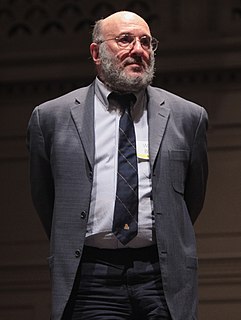A Quote by Benjamin Franklin
Private property...is the creature of society and is subject to the calls of that society even to the last farthing.
Related Quotes
Private property ... is a Creature of Society, and is subject to the Calls of that Society, whenever its Necessities shall require it, even to its last Farthing, its contributors therefore to the public Exigencies are not to be considered a Benefit on the Public, entitling the Contributors to the Distinctions of Honor and Power, but as the Return of an Obligation previously received, or as payment for a just Debt.
You are horrified at our intending to do away with private property. But in your existing society, private property is already done away with for nine tenths of the population; its existence for the few is solely due to its non-existence in the hands of those nine tenths. You reproach us, therefore, with intending to do away with a form of property, the necessary condition for whose existence is the non-existence of any property for the immense majority of society.
It has been the fashion to speak of the conflict between human rights and property rights, and from this it has come to be widely believed that the use of private property is tainted with evil and should not be espoused by rational and civilized men... the only dependable foundation of personal liberty is the personal economic security of private property. The Good Society.
Society is a long series of uprising ridges, which from the first to the last offer no valley of repose. Whenever you take your stand, you are looked down upon by those above you, and reviled and pelted by those below you. Every creature you see is a farthing Sisyphus, pushing his little stone up some Liliputian mole-hill. This is our world.
Christ represents originally: 1) men before God; 2) God for men; 3) men to man. Similarly, money represents originally, in accordance with the idea of money: 1) private property for private property; 2) society for private property; 3) private property for society. But Christ is alienated God and alienated man. God has value only insofar as he represents Christ, and man has value only insofar as he represents Christ. It is the same with money.
Pollution and overuse of resources stem directly from the failure of government to defend private property. If property rights were to be defended adequately, we would find that here, as in other areas of our economy and society, private enterprise and modern technology would come not as a curse to mankind but as its salvation.
[T]rue socialism must be voluntary - not coerced. Even in the most complete system of society we can conceive the individual must still have rights and property. He must appropriate food to sustain his life. He must wear clothes which are his. He must have his private and exclusive apartment, and must have the right to be in some place on God's earth from which he cannot be evicted by landlord of society.
[T]here are, at bottom, basically two ways to order social affairs, Coercively, through the mechanisms of the state - what we can call political society. And voluntarily, through the private interaction of individuals and associations - what we can call civil society. ... In a civil society, you make the decision. In a political society, someone else does. ... Civil society is based on reason, eloquence, and persuasion, which is to say voluntarism. Political society, on the other hand, is based on force.
If we as a society want to cure unemployment, raise real wages, and in other ways improve our economy, we will base public policy on private property rights, the non-aggression principle and the law of free association. In the free and prosperous society, everyone may do precisely as he pleases, provided only that he does not initiate violence against non-aggressors.
It is a moot question whether the origin of any kind of property is derived from nature at all. It is agreed by those who have seriously considered the subject that no individual has, of natural right, a separate property in an acre of land, for instance. By a universal law, indeed, whatever, whether fixed or movable, belongs to all men equally and in common is the property for the moment of him who occupies it; but when he relinquishes the occupation, the property goes with it. Stable ownership is the gift of social law, and is given late in the progress of society.
































